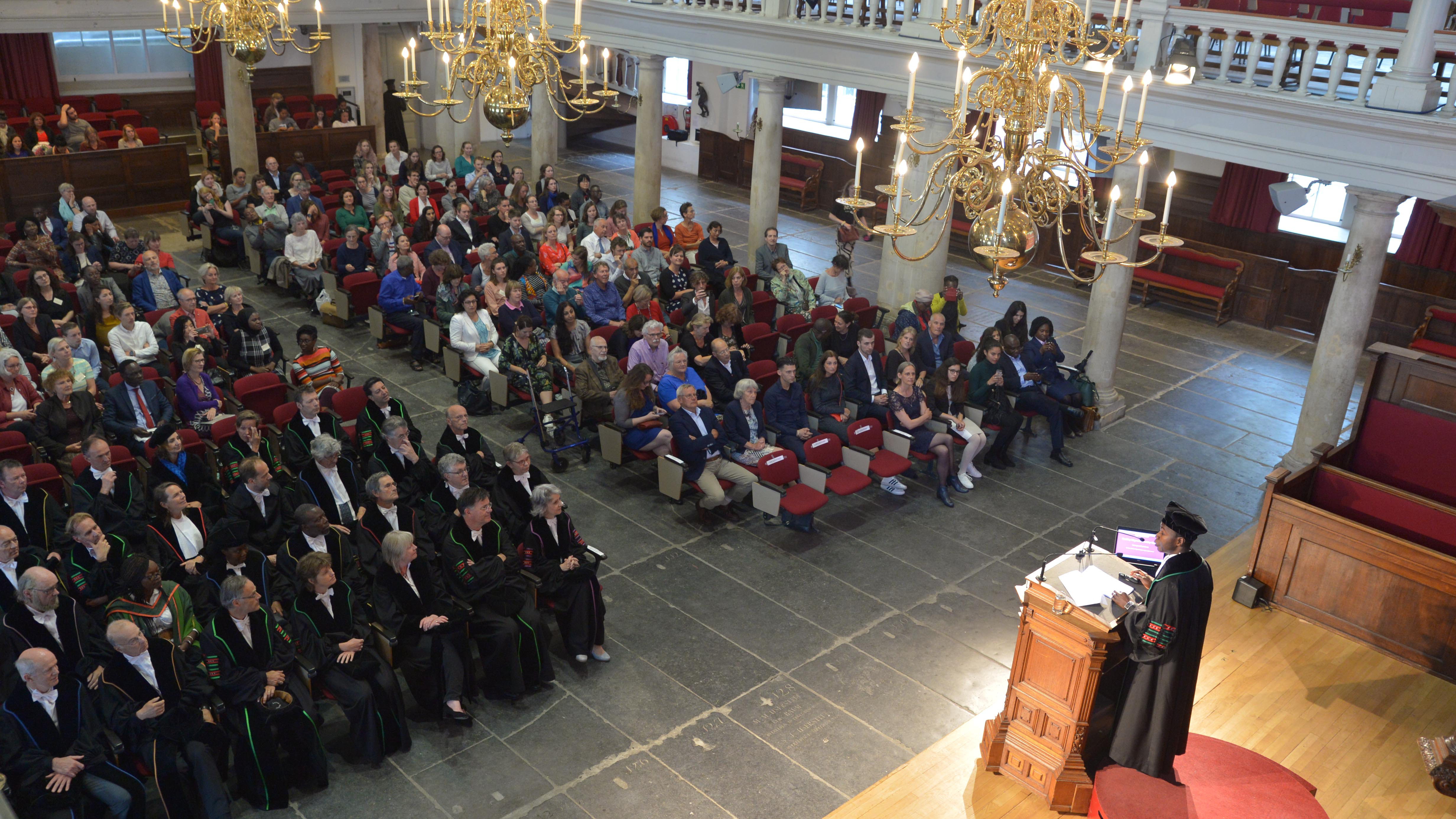
04 Jul Chance conversation inspires migrant health career path for newly minted Professor
As a student, Professor Charles Agyemang envisioned a global health career focused on HIV. But after a discussion with his supervisor, he realized he found a new passion: migrant health.
This chance conversation turned out to be the start of an extraordinary academic career, marked by his inaugural lecture Healthy Migrant, Healthy Society, which he gave earlier this week at the University of Amsterdam’s Agnietenkapel. Professor Agyemang is a long-time partner of AIGHD and a global health researcher.
“The more I read about migrant health, the more I realized how much work needed to be done in this field,” he said of his choice to change his career path.
Migration has occurred for as long as humans have existed, but in recent years, there has been a surge in migrants relocating from conflict zones particularly in Africa and the Middle East to other areas of the world.
Prof. Agyemang says governments all over the world are striving towards universal health coverage, but health systems simply won’t be effective for everyone if migrant groups are excluded from policies, research and care.
“We already know that migrants tend to have poorer health than comparable groups in the host countries, especially when it comes to hypertension, diabetes, and high blood pressure, so studying all aspects of migrant health is crucial to gaining a better understanding and ultimately, implementing policies that will benefit everyone.”
Specifically, he’s taken a keen interest in studying epigenetics, which is the interaction between genetic and environmental factors on one’s health. He is also involved in community projects and intervention studies with the goal of improving the health of migrant groups in the Netherlands, along with his work in the RODAM study.
While his research has accelerated our understanding of migrant health, Prof. Agyemang says there’s much more work to be done.
He recently received a prestigious grant from the European Research Council (Consolidation) to transform the RODAM study into a prospective study, which will begin next month. The goal of this study is to close some of the gaps in our understanding of migrant health while opening the door for effective policies in the future.
“We need to understand the factors that drive the difference between migrants and host populations, and the best way to do this is to study migrants over a number of years, to see how their health status change as they relocate. Only then can we truly understand how we can best address the evolving health needs of these populations.”
Please join us in congratulating Prof. Agyemang for this important milestone in his career!
